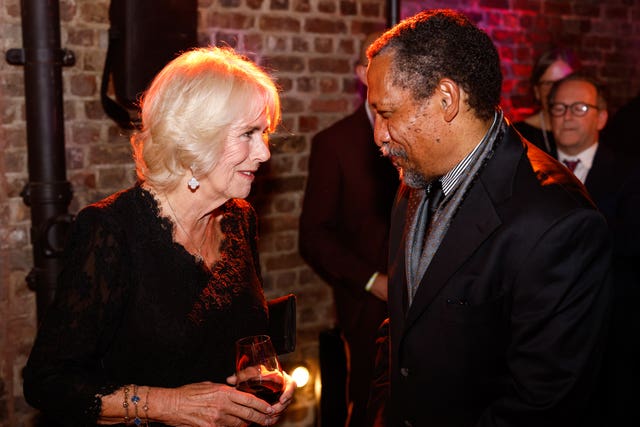Booker Prize 2024 shortlist features five female authors
This year’s Booker Prize shortlist has been announced.

This year’s Booker Prize shortlist will feature the biggest number of women authors in its 55-year history.
Five women and one man will feature on the shortlist for the prestigious literary prize.
The list, whittled down from a longlist of 13, also includes the first Australian author in a decade, as well as the first Dutch writer to be shortlisted.
British, Canadian and American authors comprise the rest of the six-strong list, with two authors making the shortlist for the second time.
One of the books featured is Orbital, by English novelist Samantha Harvey, which centres around six astronauts on the International Space Station (ISS), with Harvey previously explaining: “I wanted to write about our human occupation of low earth orbit for the last quarter of a century – not as sci-fi but as realism.
“Could I evoke the beauty of that vantage point with the care of a nature writer? Could I write about amazement? Could I pull off a sort of space pastoral? These were the challenges I set myself.”
Harvey was longlisted for the Booker Prize in 2009 for The Wilderness, and previously published a memoir about her insomnia, The Shapeless Unease: A Year Of Not Sleeping, in 2020.

In 2022, Everett made the Booker shortlist for The Trees and this year he is shortlisted for James, which is a powerful retelling of The Adventures Of Huckleberry Finn by Mark Twain, from the perspective of the enslaved Jim.
In 2021 Everett’s Telephone was a Pulitzer Prize finalist, and his 2001 novel Erasure was adapted into the film American Fiction, starring Sterling K Brown and Jeffrey Wright, and which won director Cord Jefferson the best adapted screenplay Oscar earlier this year.
Fellow American Kushner is shortlisted for Creation Lake, having previously been shortlisted for the Booker Prize in 2018 for The Mars Room.
Kushner, whose other works include The Flamethrowers, said of Creation Lake: “I had long wanted to tell a story about a group of young people who decamp from Paris to a rural outpost in France, where they are set on a collision course with the French state.
“At the same time, I became interested in prehistory, both what can be known about ancient people and what the longing to know actually is, a sense that we have taken a wrong turn, that our ancestors hid messages from us that we don’t know how to read.”
Charlotte Wood is the first Australian author to be shortlisted in a decade, with Stone Yard Devotional, which follows a middle-aged woman who leaves Sydney for the small religious community in the middle of the outback where she grew up – but instead of finding quiet refuge, increasingly haunting visitors drop by the rural town.
Australian author Richard Flanagan won the Booker prize in 2014, for The Narrow Road To The Deep North, which was set on the notoriously cruel Thailand-Burma railway where his father was a prisoner of war.
Dutch author Yael van der Wouden features with debut novel, The Safekeep, and is also the first Dutch author to make the Booker shortlist.
Additionally, her other work includes having written an online, David-Attenborough themed advice column, answering people’s problems posing as Sir David.
Canadian Anne Michaels, known for her poetry and 1996 novel Fugitive Pieces, is shortlisted for Held, described on the official Booker Prize website as “a narrative that spans four generations, moments of connection and consequence ignite and re-ignite as the century unfolds”.
This year’s judging panel is chaired by artist and author Edmund de Waal, who is joined by award-winning novelist Sara Collins, The Guardian’s Fiction Editor Justine Jordan, and writer and professor Yiyun Li.
Musician, composer and producer Nitin Sawhney, who has collaborated with Sir Paul McCartney, Sting and Pink Floyd and won an Ivor Novello Lifetime Achievement award in 2017, is also on the judging panel.
The judges said of Michaels’ Held: “Starting with a wounded soldier on a French battlefield, this lyrical kaleidoscope of a novel is created from the scattered images and memories of four generations of a family.”

“Great novels can change the reader. They face up to truths and face you in their turn.”
He added: “The fault lines of our times are here. Borders and time zones and generations are crossed and explored, conflicts of identity, race and sexuality are brought into renewed focus through memorable voices.
“The people who come alive here are damaged in ways that we come to know and respect, and we come to care passionately about their histories and relationships.”
This year’s Booker Prize ceremony is being held on November 12, and the winning author will receive £50,000 and a trophy.
Last year’s winner was Irish author Paul Lynch and his Dystopian novel Prophet Song.





